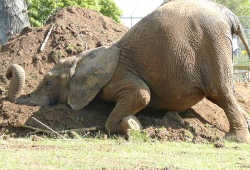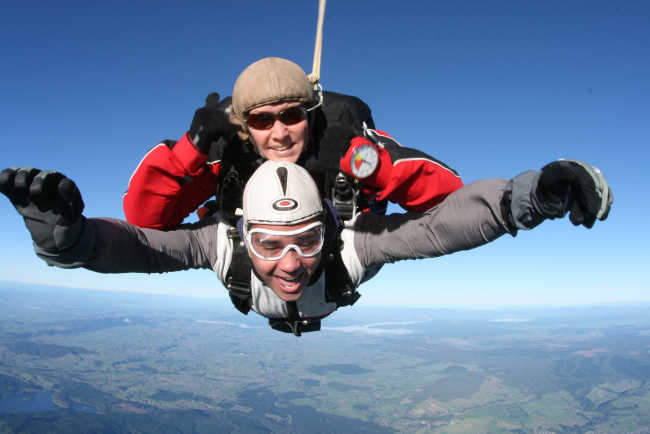Paul Clearwater – A Kiwi in Sydney – 18/05/01
As the late and great Baden Powell so significantly said: Be prepared: so too, does this aphorism apply to moving away to another city.
|
|
| Paul Clearwater Photo source Paul Clearwater |
Check your funds before moving Darwinism also applies, even here in the wilderness of Sydney; survival of the fittest is a primary phenomenon; that is, the amount of cash you have determines your level of fitness. In the delicate yet essential matter of money, make sure you have enough to last you at least a month or two without an income. This amount encompasses essentials: money for food, accommodation, and of course, alcohol and coffee. Scouts’ honour, he mutters as he frivolously salutes the computer screen.
Arrival in Sydney
On my arrival at Sydney’s Kingsford Smith airport, I was instantly met by heat, humidity, customs guards informing me that I was not an Australian citizen and that I was to get in the general immigration row immediately, and, when I stepped outside, expensive looking cars.
Automobiles and their make are an integral factor in determining the affluence and/or status of a city. The cars that hurriedly zipped on by whilst I sat in behind the taxi driver who was encased in bullet proof plastic were a cornucopia of BMWs, Mercedes, Range Rovers and the odd Holden to boot. Once the immediate feeling of panic had subsided, it came to me that I had arrived to a city of wealth – well, the cars were pretty flash and all – I have since learnt that where there is wealth there also lies poverty close by. The cars driving on by signified to me that there was money to be made here, but this also means that Sydney is an expensive city to inhabit.
A base from which to plan This brings me to my next point, that of accommodation; a place to rest your prized jersey full of patchwork awards earned from scouting sojourns of days past, a place to practise your knots and, most importantly, a place to begin building upon something resembling normality.
So, you’ve arrived with your pants down, so to speak, and you are undoubtedly feeling the effects from the night spent on slurring farewells and a purely liquid diet. If you haven’t already set up a place to stay through a friend over here, that is, a prearranged floor to sleep on, or a couch if you’re lucky, then you will have to look for an alternative: a hostel.
Sydney has a huge variety of accommodation, including a significant amount of travellers’ hostels (I am assuming you are on a tight budget). The best place, in my opinion, is to set yourself up in the city centre. This enables you to be close to the sights worth seeing and later, a place to look for work (we’ll get to that later). Budget accommodation starts at around $17 per night or $110 for a week paid up front. Facilities differ greatly from dorm to dorm, but are generally clean and functional. If you are looking for shared accommodation there are usually many signs pinned up on the hostel notice board (and sometimes some other great deals, including cheap cars, beds, etc). Alternatively, have a look in the Sydney Morning Herald newspaper on Wednesdays and Saturdays. Shared accommodation ain’t cheap, you won’t really get a room below $120. If you do, then you’re probably soon to discover that your room is the broom closet.
Time to take a looksee Now, with a place to stay, you have time to explore! There is a lot to see and experience in Sydney. You can of course see the Opera House, lie on one of Sydney’s famous beaches, frequent Kings Cross, visit the zoo, walk the city streets and take in the general atmosphere. To do this cheaply I would advise buying a ‘red weekly’ transportation ticket, so that you can then travel around the city on buses, trains, and ferries. This ticket costs $28, and it will enable you to travel all over the city for an entire week. You will inevitably get a little lost and very much confused, such as when I arrived here and caught a train that went in completely the wrong direction that I wanted it to. These things happen, and they tend to make good stories at a later date. It is important to ‘get around’ and see things. This will solidify your initial qualms about being a speck of dust within this vast city and will also ensure you of some unforgettable experiences. Take for example, the morning rush for trains – beware of the liquid crowds of commuters that will whisk you away and off your feet. Try to avoid rush hours between 7.30am and 9am and also 4.30pm to 6pm.
When reality bites After you have partied hard, seen the scenes, walked around in circles, drowned the inevitable sorrows of leaving familiarity behind and have found a place to base your self, you will then have to sober up enough to find work. Reality will soon hit you, because as was said before, this city feeds on money, your money, so you will eventually have to find a job to earn some cold hard cash. Do not get yourself into the fix I experienced, that of running out of money before finding a job. The reason is simple: two minute noodles are not a sustainable diet and, it isn’t true that there is a meal within every beer: scouts honour.
The job search Now, depending on your skill base and/or your education, the options will obviously differ greatly as to what kind of work you are seeking. If you are a fresh faced University graduate looking for that break in to the professional working life, then take note that experience is a definite plus when scaling the agencies and papers for work. On the other hand, there is probably no better city in Australia to make that transition from University to the work force, for there are opportunities a plenty out there. Training/Qualifications are great, but employers look for any practical skills that you possess, and that means relevant experience in the work force. But hey, us Kiwis are known for our flexibility in situations of crisis, so any job is a good job when it comes to surviving.
Be sure to scale the web before you go, as this can give you an idea of what is out there, sites such as: http://www.seek.com.au, or www.mycareer.com.au.
These sites also give invaluable tips on what the job market is like in your chosen field, tips on interviews and how to write a resume. It also pays to contact employment agencies; they supply many jobs that are not advertised in papers and it is their job to find you a job. There is a hitch however (isn’t there always), for agencies can treat you as a number rather than a face or a name. This can be a little disheartening, but in reality the agents have many people to organize and place into employment, so it is worth while ringing them often so as to keep your name fresh in their minds.
The main motto of finding work in Sydney is to actively make it your occupation to find an occupation; door knock, badger people, or you can even beg if you want to, but most importantly keep your chin up. At the place where I now work, there was an occasion where a guy came in for an interview. Apparently things went fine. However, as he was leaving and the elevator doors were closing he cried out in anguish: “No-one hires me because I have Leukemia”. This is a true story and it just shows you the lengths that some will go to. By the way, he wasn’t hired (surprise, surprise), so I don’t recommend this kind of tactic.
Sydney consists of over 4 million people (roughly the population of New Zealand), so yes, there are a greater number of jobs, but there are also a greater number of people going for those jobs. It is a competitive market out there, and you have exert yourself to be successful. So what are you waiting for? Get on out there!
..And the sun sets in the west.. Now that you are set up with a job and a place to stay you no longer need my tips and advice on breaking into Sydney. It is an important step in one’s life, that of moving to another city in another country (but not so important that you can’t have a laugh over it). It takes a bit of leniency on your part to accept the Aussies as they are, but they are generally similar to us and are (in most cases), friendly people. Just remember to take the banter in a casual manner. Sure, we aren’t as great at sport and we maybe we do speak a little differently, but we come from a great country, and we are accepted as compatriots (in a few cases). Just remind them all that we are here to steal their best, most prominent jobs, and they will usually bow to that tact with a slight whimper and an absolutely poor effort at a come back.
So good luck, and I’ll see you at the bar.





